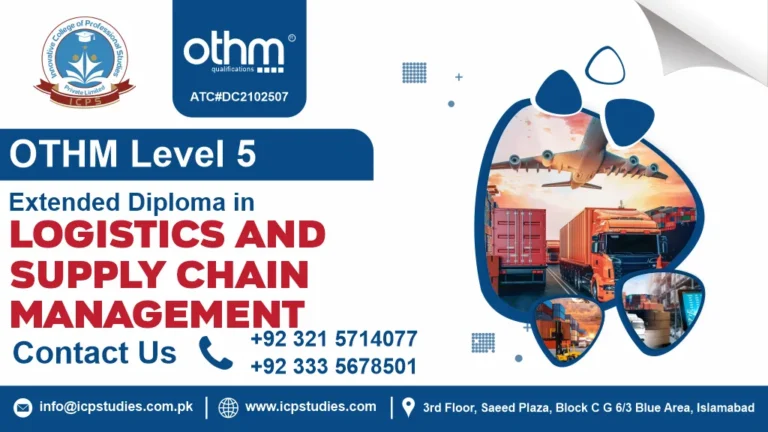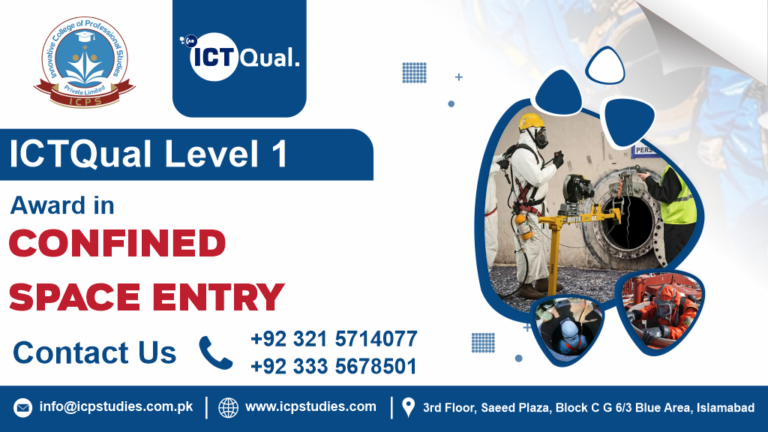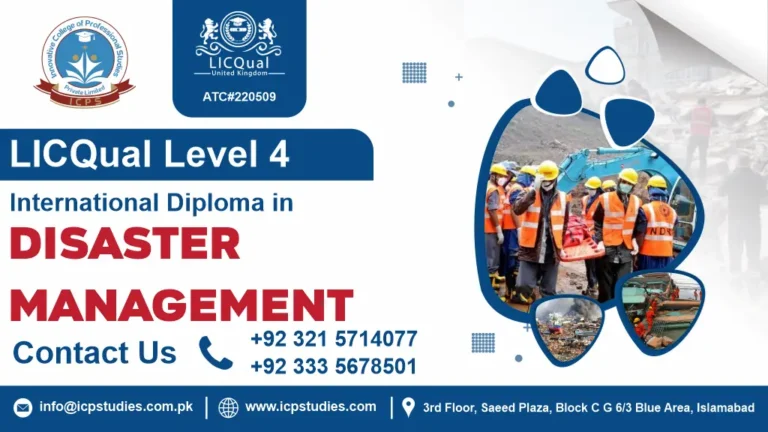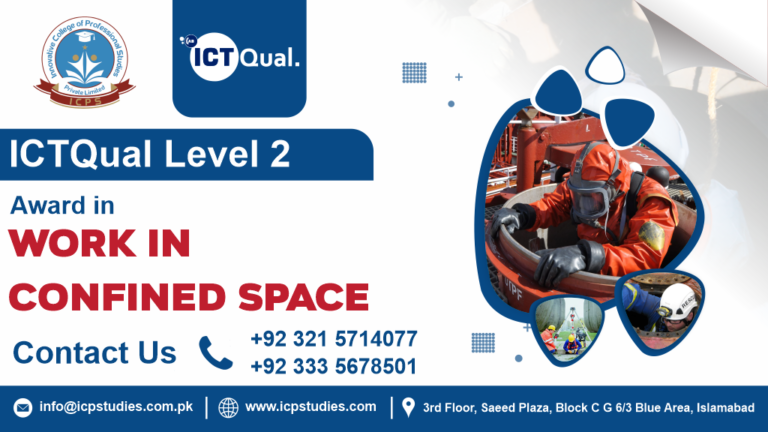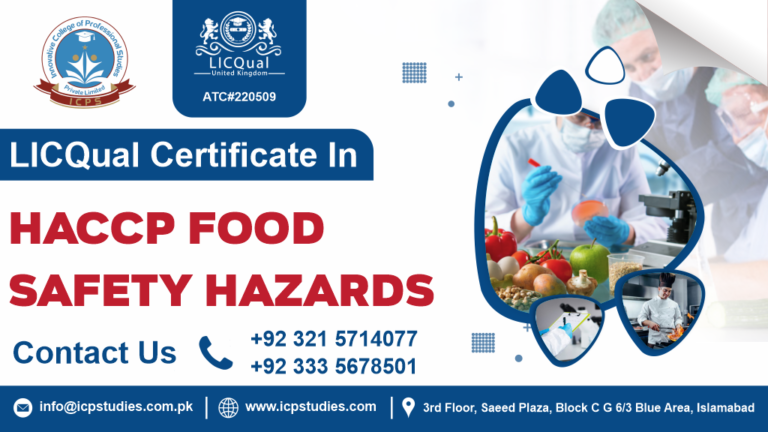Elevate your expertise with advanced concepts and techniques in risk assessment. This certificate program goes beyond the basics, equipping you with the skills needed to tackle complex risk scenarios and make informed decisions.
LICQual certifications are globally recognized and respected in the field of risk management. By earning the Level 2 Certificate, you demonstrate your commitment to excellence and position yourself as a credible and competent risk management professional.
Stand out in a competitive job market and unlock new opportunities for career growth. Whether you’re seeking to advance in your current role or explore new avenues in risk management, this certificate sets you apart as a leader in the field.
Our flexible learning options cater to your busy schedule. Whether you prefer online courses or in-person workshops, you can pursue your professional development goals at your own pace and convenience.
Don’t let risks hold you back—embrace the opportunity to lead with confidence and expertise. Enroll now in the LICQual Level 2 Certificate in Risk Assessment today and unlock a world of possibilities in risk management. With our advanced curriculum, expert guidance, and industry recognition, you’ll emerge as a trusted leader in risk assessment and management.
All About Level 2 certificate in Risk Assesment
Course Overview
The Level 2 Certificate in Risk Assessment is an advanced training program designed to provide individuals with comprehensive knowledge and practical skills in identifying, assessing, and managing risks across various environments and industries. This course builds upon the foundational principles covered in introductory risk assessment courses, empowering participants to become proficient in conducting risk assessments, implementing control measures, and communicating findings effectively to stakeholders.
Participants will delve into advanced risk assessment methodologies and techniques, including quantitative risk analysis, scenario-based modeling, and probabilistic risk assessment. They will learn how to apply these methodologies to analyze complex risk scenarios and make informed decisions.
The course covers in-depth knowledge of legal and regulatory frameworks governing risk management practices. Participants will gain an understanding of relevant legislation, standards, and industry-specific regulations and learn how to ensure compliance with these requirements.
Leadership skills are essential for driving a culture of safety and accountability within organizations. Participants will develop leadership competencies such as decision-making, problem-solving, and change management, enabling them to lead risk management initiatives effectively.
The Level 2 Certificate in Risk Assessment equips participants with the advanced knowledge, skills, and leadership abilities needed to excel in risk management roles. By completing this qualification, participants demonstrate their commitment to excellence and readiness to lead risk management initiatives within their organizations, contributing to safer and more resilient workplaces.
Study Units
Learning Outcomes
Here are the expected outcomes for each of the study units:
Introduction to Risk Assessment
- Gain a comprehensive understanding of the principles and importance of risk assessment.
- Learn about the key components of the risk assessment process and its role in promoting safety and minimizing organizational risks.
- Develop foundational knowledge of risk assessment terminology, concepts, and methodologies.
Legal and Regulatory Framework
- Acquire knowledge of relevant laws, regulations, and industry standards governing risk management practices.
- Understand the legal obligations and responsibilities of individuals and organizations in conducting risk assessments and implementing control measures.
- Learn how to ensure compliance with legal requirements and maintain accountability in risk management practices.
Hazard Identification and Risk Analysis
- Develop skills in identifying and assessing hazards across various environments and contexts.
- Learn how to conduct thorough hazard identification assessments using techniques such as inspections, observations, and hazard analysis.
- Gain proficiency in analyzing and evaluating risks to determine their likelihood and potential consequences.
Risk Evaluation and Control Measures
- Understand the process of risk evaluation and prioritization based on assessed risks.
- Learn how to develop and implement appropriate risk control measures and mitigation strategies.
- Explore the hierarchy of controls and best practices for selecting and implementing control measures to reduce or eliminate identified risks.
Risk Assessment Report and Communication
- Develop effective communication skills for conveying risk assessment findings to stakeholders at all levels of the organization.
- Learn how to prepare clear and concise risk assessment reports, including risk matrices, risk registers, and mitigation plans.
- Understand the importance of documenting the risk assessment process and outcomes for accountability, compliance, and decision-making purposes.
By completing these study units, participants will develop a comprehensive understanding of risk assessment principles, methodologies, and best practices. They will also gain practical skills in identifying hazards, assessing risks, implementing control measures, and communicating findings effectively to stakeholders. Ultimately, participants will be equipped with the knowledge and tools needed to conduct thorough risk assessments and contribute to safer and more resilient workplaces.
Admission Criteria
The entry requirements for the “Level 2 Certificate in Risk Assessment” course typically include:
- Educational Background:
- There are generally no strict educational prerequisites for enrolling in this course. However, a basic level of literacy and numeracy may be required to comprehend course materials and participate effectively in assessments.
- Work Experience:
- While not always mandatory, some prior work experience in roles related to health and safety, risk management, or related fields may be advantageous. Previous experience in a workplace environment can provide valuable context for understanding risk assessment concepts.
- Language Proficiency:
- Candidates should have a sufficient level of proficiency in the language of instruction (usually English) to understand course materials, participate in discussions, and complete assessments. Language proficiency requirements may vary depending on the institution or training provider.
- Access to Learning Resources:
- Candidates should have access to the necessary learning resources, such as course materials, textbooks, and online platforms, to support their studies. This may include access to a computer with internet connectivity and basic computer literacy skills.
- Commitment and Motivation:
- Successful completion of the course requires a commitment to learning and a strong motivation to acquire knowledge and skills in risk assessment. Candidates should be prepared to dedicate time and effort to their studies and actively engage with course materials and activities.
- Admission Procedures:
- Candidates may need to undergo an admissions process, which could include submitting an application form, providing relevant personal information, and possibly attending an interview or assessment to assess suitability for the course.
- Prerequisites for Advanced Courses:
- Depending on the candidate’s career goals and aspirations, successful completion of this course may serve as a prerequisite for enrolling in more advanced courses or qualifications in risk management or related fields. Candidates interested in pursuing further studies should review the entry requirements of those programs.
It’s essential for prospective candidates to review the entry requirements outlined by the institution or training provider offering the “Level 2 Certificate in Risk Assessment” course. Meeting these requirements ensures that candidates are adequately prepared to undertake the course and derive maximum benefit from their learning experience
Ideal Candidate
The “Level 2 Certificate in Risk Assessment” course is designed for individuals who wish to deepen their understanding of risk assessment principles and practices and develop advanced skills in identifying, assessing, and managing risks across various environments and industries. This course is particularly beneficial for:
- Experienced Health and Safety Professionals: Individuals who already have experience in health and safety roles and seek to enhance their expertise in risk assessment to advance their careers.
- Risk Managers and Consultants: Professionals working in risk management or consulting roles who want to strengthen their skills and credentials in risk assessment.
- Senior Executives and Managers: Managers and executives with responsibilities for overseeing risk management initiatives within their organizations, aiming to gain a deeper understanding of risk assessment processes.
- Compliance Officers and Regulatory Professionals: Professionals responsible for ensuring compliance with industry regulations and standards, seeking to improve their knowledge and proficiency in risk assessment practices.
- Safety Representatives and Team Leaders: Individuals designated with safety responsibilities within their organizations who want to develop their skills in identifying and managing risks effectively.
- Entrepreneurs and Small Business Owners: Business owners and entrepreneurs who recognize the importance of risk assessment in maintaining a safe workplace and complying with legal requirements.
- Students and Recent Graduates: Students studying health and safety, environmental science, engineering, or related fields who want to supplement their academic studies with practical knowledge and skills in risk assessment.
- Anyone Interested in Workplace Safety: Individuals passionate about promoting workplace safety and contributing to the creation of safer environments for employees and stakeholders.
The “Level 2 Certificate in Risk Assessment” course caters to a diverse audience of professionals and individuals who are committed to enhancing their understanding and proficiency in risk assessment processes to ensure safety, compliance, and organizational resilience.
FAQs about Level 2 certificate in Risk Assesment



